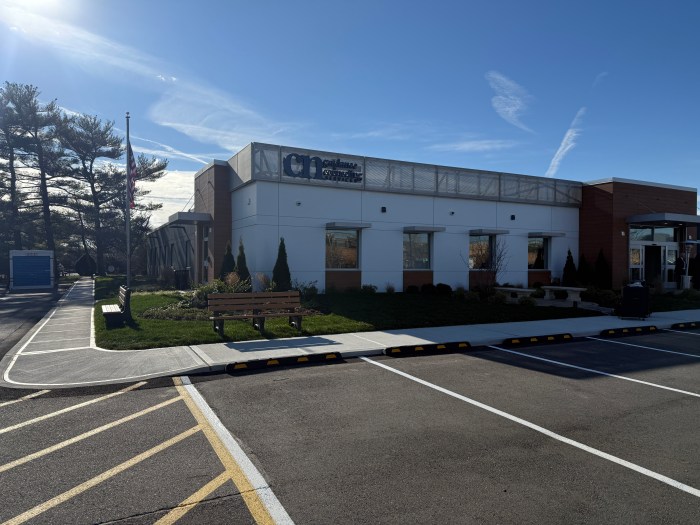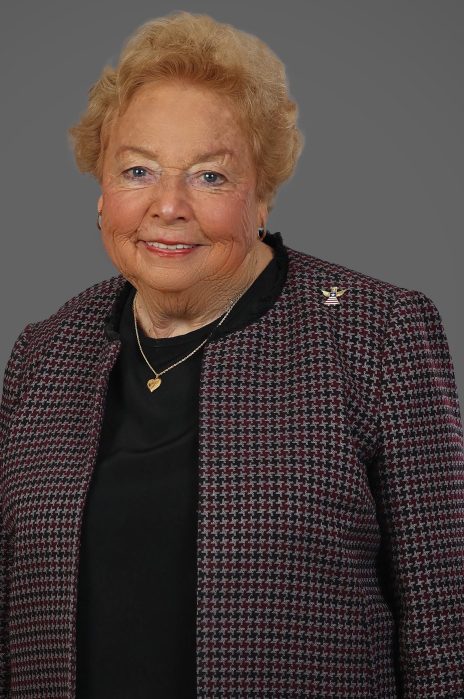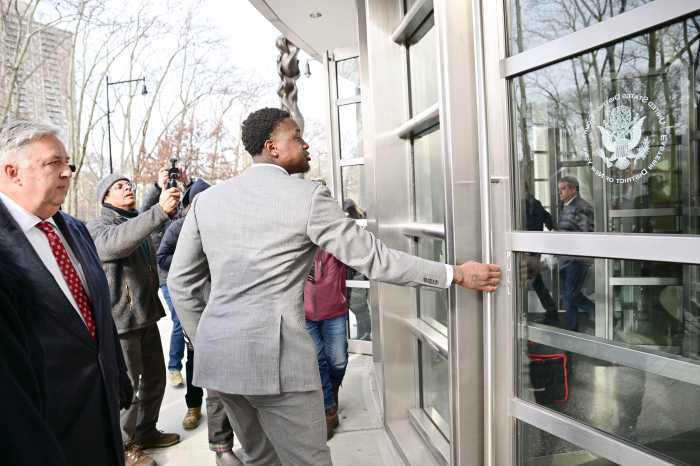U.S. Senate hopeful addresses ongoing issues at town hall
Town of Oyster Bay Supervisor John Venditto introduced Nassau County Comptroller George Maragos as “hopefully our next U.S. Senator from the State of New York” at Hicksville Community Center’s town hall meeting on March 22.
Venditto lauded Maragos for his work as comptroller since he assumed the post in 2009, but reassured residents that Maragos’ next venture, if elected, may have a greater impact on the county than his current one.
“To have a gentleman like George Maragos as a U.S. Senator, who is Nassau-oriented in his thinking – I’m not diminishing the role of comptroller – but that would serve us very, very well. The things he could accomplish for Nassau County in that position would be mind-boggling,” said Venditto.
Maragos and his staff monitor the $2.6 billion budget for Nassau County, which has approximately 1.3 million residents. During his first year, Maragos noted, the county had a budget deficit of $135 million and was on the verge of bankruptcy.
“Although I’m running for the U.S. Senate, my first priority is Nassau County, to do the best job that I can to ensure that we get through this very difficult financial period,” said Maragos, who came into his position with 35 years of experience in the private financial sector.
The comptroller explained how streamlining government with County Executive Edward Mangano and reducing unnecessary contracts ($158 million) helped the county to report a $26 million surplus in 2010.
“It hasn’t been easy, but for the third consecutive year we have not raised taxes. Mangano eliminated the energy tax in his first year and did it while having to absorb pension contribution increases of over 60 percent, health insurance premium increases over 30 percent and all other inflationary costs,” Maragos cited.
“To say that he has been performing an exceptional job under extraordinarily difficult circumstances is a bit of an understatement – he’s running the 100-yard dash with a 100-pound concrete block on his back and he’s doing it quite well,” said Venditto, adding, “I’m glad I don’t have his job, but I’m glad he has his job, because he’s handling it very well.”
Regarding ongoing Nassau County issues, Maragos provided specifics for the approximately 30 residents in attendance.
Maragos said the Nassau County public-private bus partnership has “restored better service at a much better cost” and noted that the deal hasn’t been in the public spotlight recently “because it has been a successful transition.”
As far as the police precinct consolidation goes, the comptroller said public safety “should not be comprised” once the plan takes shape and that the county will eventually save nearly $20 million. Nassau County Police Department Deputy Commissioner Thomas Krumpter said he prefers the term “administrative realignment” as opposed to consolidation.
“We’re shifting how we do work, what drives activity. There will be an increased number of police officers available to address crime issues. We’ve reduced 148 administrative positions and created 48 problem-oriented police [POP] cops,” explained Krumpter.
The Third Precinct, Krumpter noted, is the county’s busiest, handling approximately 1,900 cases per year. The Second Precinct, which covers the Hicksville area, is a less active precinct and will provide some relief for the Third Precinct following the realignment.
Maragos later advised residents on a sour subject for some residents: property tax assessments.
“There continues to be issues, but there has also been significant progress made. In 2009, the property tax refund was up to $150 to $160 million and in the first year reduced to $80 million. In 2011, it was reduced to around $70 million, so we’ve seen successive improvement,” said Maragos.
The comptroller said fair and equitable assessing has resulted in “less appeals and therefore less refunds out to the property owner.” He advised residents to seek out comparable assessments to help resolve any uncertainties.
“Assessment is not perfect, there are still certain inequities within the system. If you feel you have approximately identical homes and your neighbor’s house is assessed lower than yours, file an appeal, and in most cases you will get a reduction in your assessment, therefore a reduction in your property tax and school tax,” Maragos said.
“We haven’t solved all of our fiscal challenges because our economy hasn’t recovered. Our sales tax, which is our major source of revenue, has not recovered and is still below the 2008 level. We have managed to keep the county afloat and protected the taxpayers without raising property taxes,” said Maragos, adding, “No other county government in the state has been able to do the same.”


































